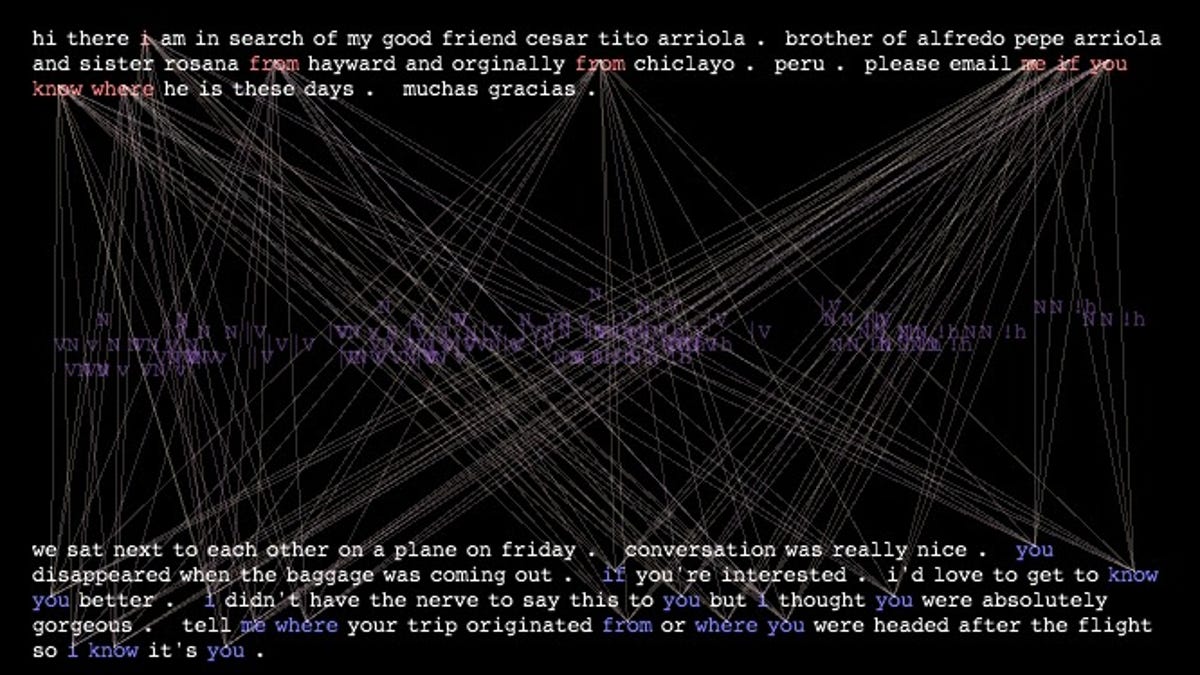Can prof's algorithm reunite Craigslist Missed Connections?
NY professor believes that a word-based algorithm can help bring together those who believe, with one glimpse, that they have found and lost the love of their lives.
Love is in the air this week. You can tell by the smell of overpriced roses, highly inflated balloons, and restaurant servers who are in the gym early, training to turn tables over four times in a night.
How touching, then, that Luke DuBois, a digital-media professor at NYU-Poly, has used his vast and loving skills to try to bring together those who seek true love on Craigslist's "Missed Connections."
At LukeDubois.com/missed, you are offered hope if you failed to get the phone number or other personal details of someone who stared a little too long at you in your local library or hookah lounge.
DuBois told The Brooklyn Paper that his site uses an algorithm that attempts to find similar words used in different Missed Connections posts in the very same city.
It does sound so much more ingenious than the methods of that slightly wordy lady on "The Millionaire Matchmaker."
Once DuBois finds a match, he sends an e-mail alert to each member of the potential couple, then gets down on his knees and prays that he is, truly, the living embodiment of Cupid.
I mention the concept of prayer not merely because it is utterly vital in finding your perfect partner. It's important because DuBois hasn't yet made a serendipitous match.
He has sent out eight e-mail alerts, but has not heard of one match. He was, he said, especially excited about a man who may have encountered the woman of his dreams while eating his salami.
The woman, apparently, troubled him for a cigarette. He seems to have failed to trouble her for her particulars.
I didn't find the site loaded easily for me (and when it did it was horribly techie-looking), but the course of true love does tend to resemble a maze designer's most tortured delights. So DuBois is begging people to stand behind him and his digital bow.
He told The Brooklyn Paper: "This is a community service experiment. If you have a computer, tune it to the Web site. If everybody puts in an hour on Valentine's Day, you can help each other with this little program. It's not too much to ask."
It is not too much to ask, indeed. But one thing might spring to mind when considering his public-spirited attitude to love: why is it that when we see it drift our way, our minds turn frigid and our thought processes are those of an especially talentless cave person?
Is it because we're afraid of failure? Or are we afraid of success?
I think it's time for the world to create a universal gesture of romantic interest that will obviate the need for DuBois' generosity.
Every time you encounter someone in whom you might have a passionate interest, you should be able to extend your hand with your cell phone in it. No words should be exchanged or, indeed, needed. No embarrassment should be felt.
The object of your extension should then be free to type his or her cell phone number into your phone.
I know this sometimes happens in bars and clubs, but it is often accompanied by conversation. The concept surely needs extension. It should be immediately and universally accepted as normal.
I feel then that the world would be full of so much more love and so much less need for social networking and love-matching Web sites.


